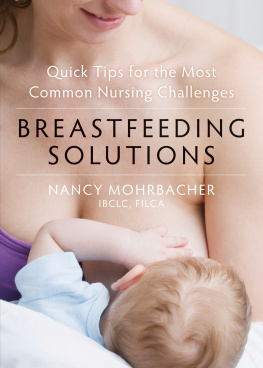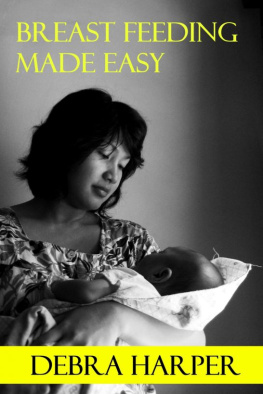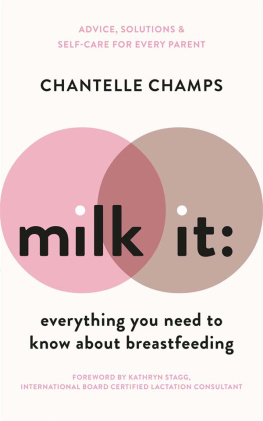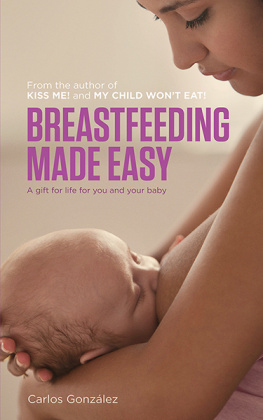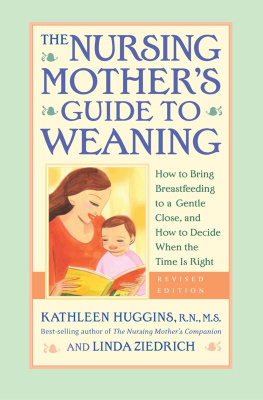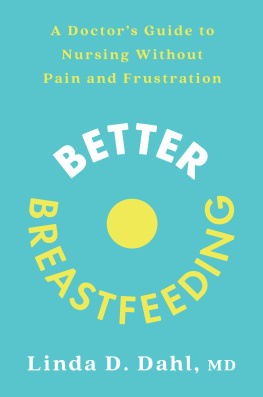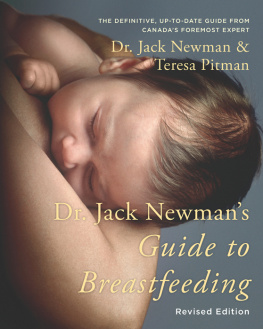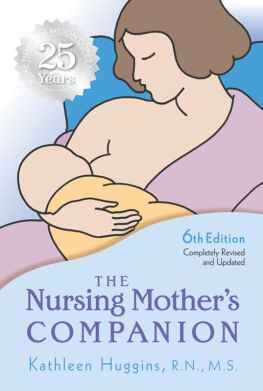Nancy Mohrbacher, IBCLC, FILCA, is the author and coauthor of several popular breastfeeding books, including Breastfeeding Made Simple, Breastfeeding Answers Made Simple, and The Breastfeeding Answer Book. She has helped thousands of breastfeeding families in the greater Chicago area, and in 2008 she was officially recognized by the International Lactation Consultant Association (ILCA).

Nancy Mohrbachers Breastfeeding Solutions is a handy guide for solving common breastfeeding problems. Breastfeeding Solutions is formatted so that new mothers can find the information they need right away, and Mohrbacher offers more than one solution for each problem she describes. That is an important feature, as so many of these problems are complex and the solution may not be readily apparent. When mothers are presented with several ways to address a problem, they more likely to persist until the breastfeeding problem is solved. Mothers will also be encouraged by Mohrbachers underlying optimism and her firm belief that breastfeeding problems can be solved. This book is a useful guide for both mothers and the practitioners that care for them. I highly recommend it.
Kathleen Kendall-Tackett, PhD, IBCLC, FAPA, editor-in-chief of Clinical Lactation, coauthor of Breastfeeding Made Simple, andowner of Praeclarus Press
Its always been my impression that breastfeeding gently nudges us into becoming the kind of mother our baby needs. So when problems arise, the clear and effective strategies presented in Breastfeeding Solutions are key to getting back on track for a life-enriching breastfeeding experience.
Marian Tompson, cofounder of La Leche League International, founder and CEO of AnotherLook, and author of Passionate Journey: My Unexpected Life.
Is there room for another breastfeeding book? My enthusiastic answer is, yes! Breastfeeding Solutions is a short primer written for busy nursing mothers seeking the latest cutting-edge answers to their concerns in a short and easy format. Nancy Mohrbacher has a way with capsulizing information into concepts like The Magic Number that help mothers understand what is happening and how to fix it, if there really is a problem. If her many solutions dont solve the problem (and they usually will), the excellent resource list will quickly direct mothers to further information on their issue. I will be sending this book to my daughter and daughter-in-law!
Lisa Marasco, MA, IBCLC, FILCA, La Leche League Leader, coauthor of The Breastfeeding Mothers Guide to Making More Milk

Introduction
Caring for a newborn is a 24/7 labor of love. With a baby in your life, even fitting in a quick shower can sometimes be tricky, so wading through a thick book to find the breastfeeding fix you need is a time-consuming frustration most mothers would rather avoid. This slim volume was written to simplify your life by cutting to the chase. A quick read, it features line drawings, bulleted lists, charts, and other visuals for fast, easy access to the best and most current breastfeeding strategies. It is also organized so that you can skip straight to your burning issue without having to read earlier chapters first.
Why do you need solutions to breastfeeding problems? After all, were mammals, so shouldnt breastfeeding come naturally? On one level, that makes sense, but unlike other mammals, human mothers have large brains and they can overthink breastfeeding, especially when bombarded with conflicting advice. Plus, many of us grew up with bottlefeeding as the norm, so we try (either consciously or unconsciously) to apply what we know about bottlefeeding to breastfeeding, which often leads to more problems.
Why is solving breastfeeding problems important? The U.S. government commissioned a team of scientists, led by Stanley Ip, who examined existing breastfeeding research and concluded in their 2007 summary that, during the first year of life, babies fed nonhuman milks have more cases of pneumonia, bronchitis, diarrhea, ear infections (up to four times more), urinary tract infections, meningitis, and sudden infant death syndrome (SIDS).
But its not just about babies. Breastfeeding is also important to moms. In recent years, U.S. physician Alison Stuebe and her colleagues have made the effects of breastfeeding on womens health a major focus of their research. They found that when breastfeeding fails, it increases our risk of the number-one killer of women: cardiovascular disease. Breast and ovarian cancers, metabolic syndrome, type 2 diabetes, and many other life-threatening health problems are also more likely when mothers dont breastfeed or when they wean early. Even decades later, breastfeeding failure has significant negative effects on womens health. Our health care system and economy are also affected. In a 2010 cost analysis published in Pediatrics, Melissa Bartick and Arnold Reinhold concluded that if 90 percent of mothers exclusively breastfed for six months, each year this would save $13 billion in U.S. health care costs and prevent 910 infant deaths.
Knowing the importance of breastfeeding, why should you take my advice? Let me share a little about myself: Ive been helping breastfeeding families since 1982, first as a volunteer breastfeeding counselorbefore lactation as a profession even existedthen, after 1991, as a board-certified lactation consultant. For ten years I worked one on one with thousands of families as the owner of a large private lactation practice in the Chicago area. The breastfeeding books Ive written are used internationally by professionals and parents, and in preparation for writing them, I steeped myself in the latest research and thinking in the field. (For more about me and my books, see my website: www.NancyMohrbacher.com.) One of my books for parents is Breastfeeding Made Simple: Seven Natural Laws for Nursing Mothers, which I coauthored with Kathleen Kendall-Tackett, PhD, IBCLC, to provide a clear understanding of basic breastfeeding dynamics.
Think of this book as a companion to Breastfeeding Made Simple. Rather than focusing on breastfeedings seven natural laws, the focus of this book is the practical and often surprising solutions to the seven most common breastfeeding challenges: Latching struggles, worries about milk supply, and nipple and breast pain are the top four. Night feedings, milk expression, and weaning make up the other major concerns.
During my nearly three decades in the breastfeeding field, the prevalence of these seven challenges among mothers has changed very little. But thanks to insights gained from recent research, a lot has changed in what lactation professionals know about these issues and how we advise mothers to overcome them.
If you find yourself facing any of these difficulties, my hope is that the suggestions in this book will help you overcome them quickly. Often all it takes is a simple tweak to transform what seems like an insolvable situation into happy and satisfying breastfeeding. But because no book can solve all breastfeeding problems, if, after trying these suggestions, you are still struggling, each chapter describes other, less common possibilities you can pursue with your local breastfeeding support person. If youre not sure where to find skilled, in-person breastfeeding help in your area, see the Resources section at the end of this book.
May this book help you meet your breastfeeding goals!

